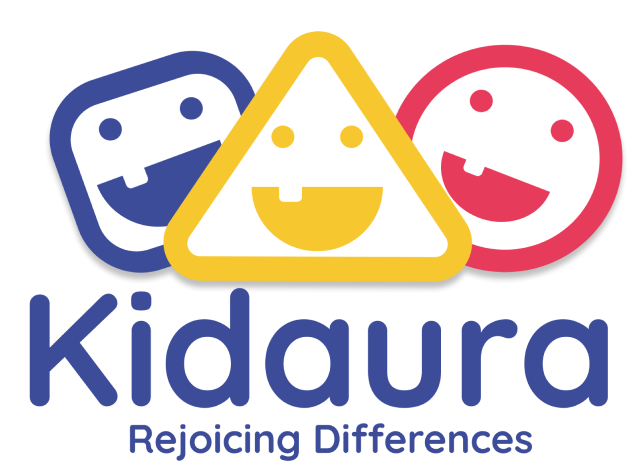A guide to Journaling your child's therapy journey
Published by Madhushree
a year ago
Seeking therapy for your child is an important factor, and one has to overcome challenges to provide the best to help them grow into well-rounded individuals. Journaling, as we know, can be a powerful tool to express ourselves and document the child's behaviors, activities, food and sleep habits, and other relevant information that can be used over time to make necessary changes and developments. Holding such content can help navigate one’s thoughts and provide better insight into understanding what is happening in the child's life.
Refer to our blog post about what journaling means and why it is essential.
Why should we Journal?
A child in therapy focuses on various aspects. When you start therapy for your child, there are various aspects that you must keep in mind and track. The start is to figure out the kind of therapy being provided and also state an end goal. There are many developments and changes that take place between the start and the end. It becomes important to have a clear picture and understanding of the whole process.
When you start therapy you can start our journaling process. Journaling can help you keep track of your child's progress over time. By documenting what your child has been working on in therapy, you can see how far they have come, and celebrate their accomplishments. If you are into ABA, Occupational, or speech therapy, all these involve a set of rules to follow, different activities, and many documenting sheets. You can structure your journal by dividing it into various sections and filling up each section every day. In this manner, you can easily view what has happened previously and what the next step would be.

While putting down this information you will be able to see various patterns that occur. Recording the child’s behaviors, habits, and moods can allow you to see what has caused it, why it has occurred, and what can be done.
Therapists will be able to point to triggers and make the necessary changes. These insights can be very useful to further improve the quality of therapy for the child. It gives a clearer picture of the various developments and growth points of the child and shows areas that need improvement.
It sure gets hard to understand and keep track of all the activities, behaviors, and situations that occur at the child’s home. Encouraging parents to keep a journal and write down the important points that take place at home. All of this information will give therapists a look into the child’s life when they are not around them. Providing a template for parents to fill up on a daily basis keeps them motivated and also makes their job easy. It's important to involve parents as much as possible keeping in mind the main goal - the child’s growth and development.
Different kinds of Journals
Tracking milestones from the very beginning can be useful for the parents or therapists. Record the baby’s first times crawling, rolling, walking, talking, etc. This can be important in the therapy process to understand where the child stands, and what interventions can be used. Here you can understand the importance of milestones
Holding a book for children between the ages of 1-2, despite the tracking of milestones is also important. Put down other information such as the weight and height over time. You can also write down the child's preferences and likes, the toys they engage in, their intake of food, and other such information.
Therapists can start to have a weekly or daily journal to sit down with the child, and truly understand their needs or wants. This can further add to the planning of activities and aid in developing appropriate home tasks and study plans for the child. These journals allow parents to document their child's daily activities, eating and sleeping habits, and any notable changes in behavior or mood.
Checklists can be another form of a journal. These journals provide checklists of developmental milestones for different age ranges, allowing parents to track their child's progress and identify any areas of concern. This can be very useful and, allows therapists to understand patterns of concern allowing them to make the necessary changes.

Finding the right checklist format or template can be challenging. Therapists need to focus on gathering as much information as they can by having various categories, relevant questions for parents to answer, and even the opportunity to understand the important events that take place in the child's home. Kidaura offers a pre-designed template aiming to cover the needs and wants of various types of therapy, a brief understanding of the child's daily life, and even a motivating element to encourage parents to fill it up on daily basis!
How can Kidaura’s Journaling feature help therapists?
Kidaura is a healthcare platform that aims at improving the quality of life of children in their formative years of growth and development. We cater to the needs of therapy centers and aid in providing a simple and easy therapy delivery process.
Kidaura’s Journaling feature is a checklist form dedicated to parents. The main purpose of having a journal checklist is to make parents inclusive in the child’s life, and also keep them involved in the therapy process. In turn, therapists gather this information on a daily basis making it easy to track, document, and understand the trends and patterns of various aspects of the child’s life. It becomes a helpful tool to have creative IEPs, home tasks, and growth plans for the child.
Here is why you need Kidaura's Journal
- Track the child’s growth and development
- Behavior tracking
- Record data for sleep, food, behavior, meltdowns, etc.
- Save’s time - digital process
- Pre-designed checklist template

We hope Journaling becomes a part of your child’s therapy process. Overall, journaling your child's therapy journey can help you and your child gain insight into their progress and behaviors, provide valuable information to their therapist, and serve as a record of their experiences.
Go on and sign up with Kidaura now to have a well-structured, digitized, and hassle-free therapy journey for each child with a developmental condition. Kidaura is here to make the lives of therapy centers smooth and well-functional.
Share via

© 2019-2024 Kidaura, All Rights Reserved




